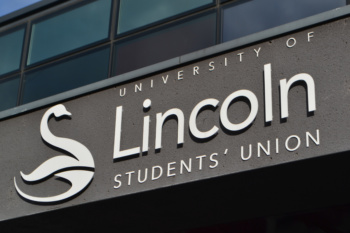The University of Lincoln’s Students’ Union has published its response to a government consultation on post-18 education and funding.

It comes after the Vice President for Academic Affairs, Tommy George, asked students for their comments at an All Student Members Meeting last month.
The consultation follows an announcement by Prime Minister Theresa May in February that the government is to review “the whole post-18 education sector”, saying that the UK now has “one of the most expensive systems of university tuition in the world”.
The University of Lincoln later welcomed the news and said: “A fair and sustainable system of post-18 education funding should help people of all backgrounds achieve their potential and meet the needs of employers.”
The full consultation response from the University of Lincoln’s Students’ Union can be found below:
“The University of Lincoln Students’ Union held an All Student Members’ Meeting in April 2018, which was attended by 204 student members. Members highlighted that their principle concern was that whilst the cost of going to University was high, the consensus was that significantly higher levels of stress was felt around how much money students’ had whilst at University, as opposed to how much debt they left with.
“Members noted that they had chosen to go into Higher Education rather than Further Education on the basis that they felt or were told that a degree was necessary to get into their respective career pathways, and onto graduate schemes. They also noted that more than an undergraduate degree was needed to get into some fields e.g. high level sports studies, where a masters or PhD is necessary. Members hold value that the title ‘University of’ in institution’s names encouraged students to go into Higher Education as this appeared to be an important status symbol to employers, which was a particular priority for International Members and for members who are first in their family to go to University.
“Despite the push on different education options, the consensus of members at the University of Lincoln was that there is not currently a comprehensive range of high quality alternative routes for those who wish to peruse a different path. We feel that there is a perception where the employment market requires you to have a degree to get a high level, well-paid job. Members also felt that a degree enables an individual to keep their career options open, whereas apprenticeships etc. tie them into just one career route. They also noted that the facilities the University of Lincoln provides were excellent, and this outweighed the route of study. One quite prominent theme around alternative routes was a lack of faith in the apprenticeship system in regards to pay and due diligence from particular organisations.
“Members raised a number of barriers to succeeding in Higher Education for members from all backgrounds. As previously mentioned, There was a significant consensus that we feel more stress regarding the money they have during their time at University rather than the debt at the end of the degree, advocating that there should be a reconsideration of student finance and the loans and grants system. Students also raised concerns regarding the additional course costs on top of the cost of the degree which need to be covered, all from students’ loans or part-time jobs; the money from which also needs to cover students’ ever increasing living costs.
“Whilst we feel that a review of post 18 education and funding is welcomed, it should be considered that our members aspire less to find a cheaper or alternative route through education than to be supported financially and informatively throughout their university experience, as that experience is just as important as other factors in their decision to attend University.“

